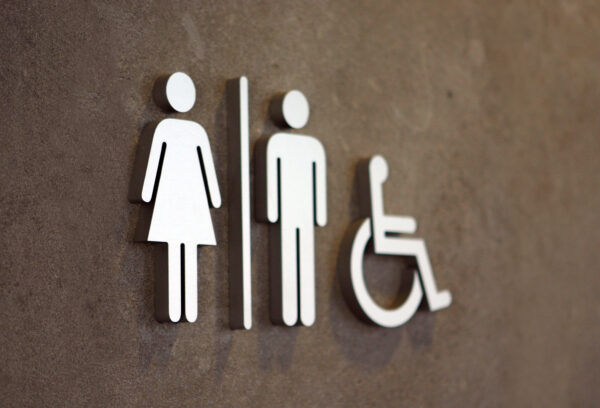

In 2022 the then government published its Special Educational Needs and Disabilities (SEND) Review Green Paper, which committed to strengthening the protections for, and improving the outcomes of, children in unregistered alternative provision. This was accompanied by a consultation called “Understanding the use of unregistered alternative provision”.
As a next step in improving experiences and outcomes for children in unregistered alternative provision, the Department for Education has held a further consultation, “Strengthening protections in unregistered alternative provision”, seeking views to limit the length of time that children can spend in unregistered settings. This aligns with the principle that alternative provision should be used as an intervention, not a destination, complementing mainstream and special school education. In addition, it is proposed that unregistered alternative providers will be subject to a new quality assurance framework, underpinned by national standards.
Unregistered alternative provision
Unregistered alternative provision is usually arranged by local authorities and schools in settings which are not schools or colleges. It can also include tutoring companies and online providers, which may operate across multiple local authorities. This type of provision is not subject to a national registration scheme or inspection framework.
One of the benefits of unregistered alternative provision is that it can be highly flexible and adapted to meet the needs of individual learners. By implementing unregistered alternative provision, children can be re-engaged in their education.
However; the Education Select Committee, Ofsted, the Children’s Commissioner and some local authority and school leaders have expressed concerns in relation to the commissioning and oversight of unregistered alternative provision.
Responses to the 2022 consultation demonstrated that the absence of adequate regulation may put vulnerable children’s education and safety at risk.
To ensure that all placements in unregistered alternative provision are safe, good quality and meet each child’s individual needs, the 2024 consultation sought views on proposals:
- To clarify the circumstances in which unregistered alternative provision could be used effectively
- To strengthen the national and local oversight of unregistered alternative provision
- To improve protections for children.
Limiting time in unregistered alternative provision
In some areas, an absence of specialised support for those with SEND had led to vulnerable children being educated solely in unregistered alternative provision settings when their needs could be better met in school.
To combat this challenge, the Department for Education has proposed that placements in unregistered alternative provision for children of compulsory school age should be for short, intensive periods of support before they return to full-time education in school. They should remain on the admission roll of their school either:
- Short-term, for 12 weeks or less, and for up to five days a week, with the pupils returning to their schools at the end of that period
- Longer-term part-time, for up to two days, or four sessions, per week alongside school attendance. Multiple longer-term placements with different providers may be used but the combined total must not exceed two days or four sessions per week.
New national standards
The consultation also proposed that all unregistered providers should adhere to new high-level national standards. This would mean that only settings complying with these standards could be commissioned. The standards cover five main themes:
- Safeguarding and the wellbeing of children
- Health and safety
- Admissions, guidance and support
- Quality of education
- Outcomes of children.
In terms of safeguarding, the standards would require appropriate recruitment checks, including an enhanced Disclosure Barring Service check, to be recorded on a single central register. Appropriate policies and procedures to safeguard children will also need to be in place and accessible, with staff made aware of its content and effective implementation strategies.
Where concerns are raised, it is proposed that robust procedures will be required by schools to record and escalate concerns and any action taken. A trained safeguarding lead will take responsibility for safeguarding, and children with needs relating to health, disability or a special educational need should have individualised plans in place.
To improve health and safety in unregistered alternative provision settings, the proposed standards require that a health and safety policy is in place and implemented by all staff, with first aid equipment available alongside access to a qualified first aider.
Where children are admitted to unregistered alternative provision, pursuant to the proposed new standards records such as Education, Health and Care Plans, behaviour reports and risk assessments should be maintained. In addition, all learners should receive an induction to help them understand their rights and responsibilities and health and safety procedures.
Pupils’ attendance should be recorded, with a clear process in place to notify the commissioner of any absence within 30 minutes of the session start time and to check on the health and wellbeing of absent learners. Settings should also record behaviour and progress, and share this information routinely with schools and parents, or with the local authority if the child is not on a school admission register.
To support high quality education in unregistered alternative provision, the proposed standards would require teaching staff to have the appropriate skills and qualifications to deliver programmes, and lesson planning should identify the knowledge, skills and understanding that different groups of learners will achieve.
In addition, regular and thorough assessment and review of progress should take place and the setting should promote the importance of attendance, punctuality and good behaviour, and have in place a strategy to address non-compliance.
Practical steps
The consultation was closed on 5 July 2024, and the responses will be considered and, where suitable, proposals may be taken forward.
When considering alternative provision for children, schools should be conscious of the need to seek high-quality provision and to work towards reintegrating the child back into school.










